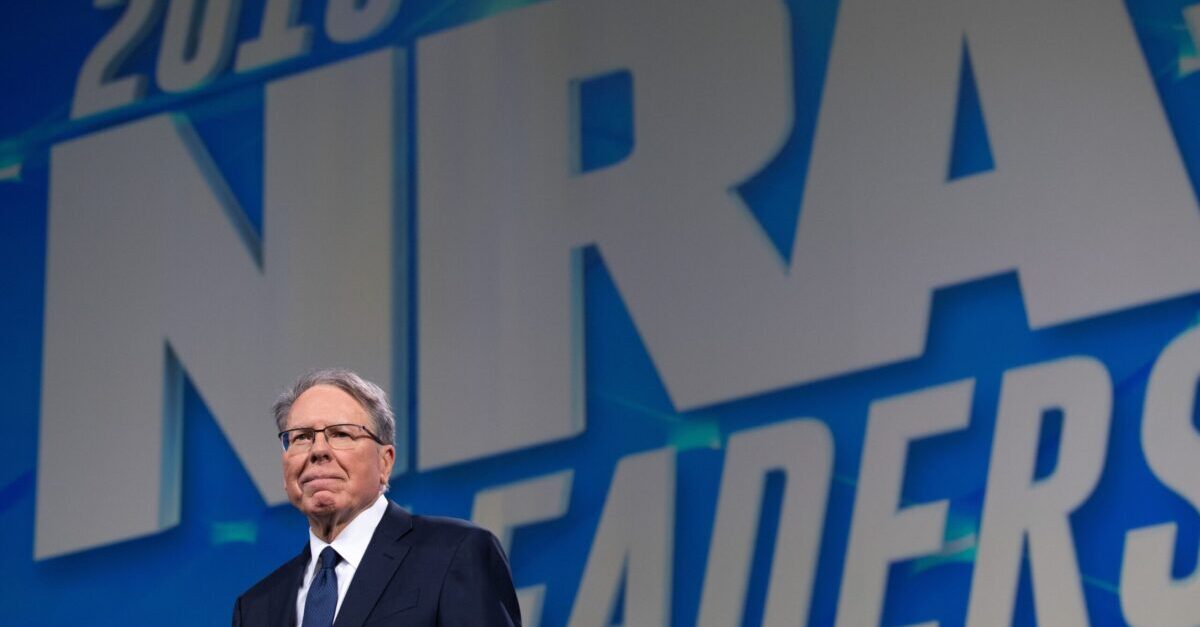
The National Rifle Association (NRA) filed its first document Sunday in response to New York State Attorney General Letitia James’s (D) lawsuit against the gun rights organization. The NRA’s initial legal reaction to the high-profile litigation is to reject the state’s complaint as “unverified” under New York’s Civil Procedure Law. As such, the NRA, through its so-called “notice of rejection,” is electing “to treat as a nullity, pursuant to N.Y. C.P.L.R. 3022, the ‘Verified Complaint’ filed August 6, 2020″ by James’s office.
Here’s how the NRA’s document starts to lay out the attack:
As the Attorney General is no doubt aware, judicial dissolution under New York’s Not- for-Profit Corporation Law is a serious matter. Government officials who target a nonprofit for destruction must swear under oath that their allegations are true—or, at minimum, that they believe they are telling the truth. See N-PCL § 1103. The government has not done so here.
Complaints are required to be verified in certain cases under New York Civil Procedure law. Verification means that the person making the complaint is basing the document on direct “knowledge” (the default) or upon “information and belief” (which must be explicitly stated). Allegations submitted on “information and belief” are considered second-hand information; allegations submitted on “knowledge” are based on first-hand accounts.
More from the NRA’s document (emphasis in original):
In particular, C.P.L.R. 3020 requires that any verification state “under oath that the pleading is true to the knowledge of the deponent, except as to matters alleged on information and belief, and that as to those matters he believes it to be true.” The Complaint against the NRA contains a purported verification, but omits the last clause: it does not state that matters alleged on information and belief are believed to be true. Under C.P.L.R. 3022, the Complaint was, accordingly, “served without sufficient verification.”
The actual verification document attached to James’s lawsuit contains a verification which, in relevant part, says as follows:
To my knowledge based on such acquaintance with the facts, the complaint is true, except as to those allegations made upon information and belief, and as to those allegations.
That verbiage is apparently not good enough for the NRA: the phrase “and as to those allegations” does not, in the NRA’s view, sufficiently link back to the phrase “the complaint is true.” The NRA wants to see the magic words on the tail end of the assertion.
The NY Attorney General’s verification document was signed by James Sheehan, the charities bureau chief within the NY AG’s office. He further stated he was “acquainted with the facts alleged” in the complaint “based on the Attorney General’s investigation of the transactions upon which the complaint is based, the annual filings and other reports made by the National Rifle Association . . . with the Charities Bureau of the Attorney General’s Office, and the investigative materials contained in the files of the Attorney General’s office.”
The NRA is basing much of its argument on C.P.L.R. 3022, which reads as follows:
A defectively verified pleading shall be treated as an unverified pleading. Where a pleading is served without a sufficient verification in a case where the adverse party is entitled to a verified pleading, he may treat it as a nullity, provided he gives notice with due diligence to the attorney of the adverse party that he elects so to do.
The alleged “defectively verified” — therefore the “unverified” pleading — could be amended; it also could be subjected to a New York rule which says pleadings should be “liberally construed”: “Defects shall be ignored if a substantial right of a party is not prejudiced.”
According to one law review, one remedy is default judgment. (New York would lose the case.) But that is rare, as the author of the article points out:
The severe character of securing a default judgment where the opponent’s pleading is treated as a nullity makes it clear that the court will allow the party in default to set the judgment aside and be given the opportunity to correct the defective verification. A better method of handing defective pleadings, as suggested, would be to permit the party, after giving notice of the defect and allowing a reasonable time for the adversary to cure, to move to strike the pleading. It is doubtful, however, that this manner is any more expeditious than the default judgment route.
The New York Attorney General’s lawsuit seeks to dissolve the NRA as a nonprofit organization; James called the NRA “fraught with fraud and abuse.” The core of James’s allegations are that NRA leaders ignored basic nonprofit law by leading the organization “from a surplus of $27,802,714 in 2015 to a net deficit of $36,276,779 in 2018 — contributing to a total loss of more than $64 million in just three years.” This, James alleged, was the result of various NRA managers, including Executive Vice-President Wayne LaPierre, of raiding the organization for their own personal benefit and their own personal indulgence.
James has long been critical of the NRA; while campaigning, she called the group a “terrorist organization.”
Read the NRA filing below:
NY v NRA by Law&Crime on Scribd
[photo by SAUL LOEB/AFP/Getty Images]